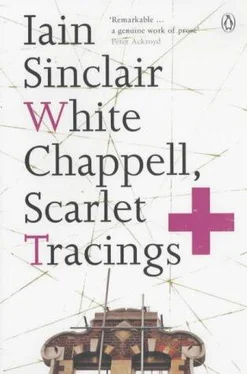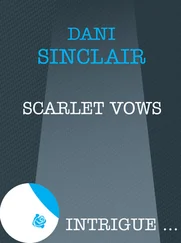John Gull smoothed the cord of his moleskin waistcoat over a full but obedient stomach. A man of business. And the creature of his God. Above him, on the wall, a wooden board had been hung, no mere decoration, the legend burnt into its varnished skin: Whatsoever thy hand findeth to do do it with thy might.
Black uneven marks. Runes. Sticks floating in gravy. The board balanced above John Gull’s head like a conjurer’s hat. These were shapes that could work miracles, could change the house into a boat. William saw his father above him, elbows upon the table, a man-tabernacle, his head in a helmet of letters.
The morning lightened, it was time to work. The sea was in the river and the river over the land. Rime and fret and rain, tides drifting in air, an unshaped world of ditch and channel. There were fish in the trees and owls swimming.
His house was an upturned boat. There were no others. We are the only people in the world, thought William. We are the first ones, the chosen. This is our Ark. The world is water. But we shall be sent out over all the great wide fields of the ocean: we shall look upon God’s face. We are his Gull.
Aloga taimma a gaoow liifbb a baogy ho livin a hao s. The sharp point of the stone cut out a white trace against the slate. Sunlight flashed and darted on the estuary. William’s fingers pushed the stone up and down, taking pleasure in gouging a track for the letters he knew, but could not read.
‘T-t-taking a likeness, I suppose? T-t-this fine Armada of your f-f-father’s. Very cred-it-able.’
The tall shadow across his work stopped William. There was more, but now he would not mark it. The man breathed on his neck, warm horsebreath, as he bent to make a show of examining the work.
‘Making a testa met.’
The stranger sniffed at such precociousness and, without being invited, the child showing no sign of rising, sat on the ground alongside him.
‘W-w-will you read t-t-to me from your t-testament?’ He took great care to stress the missing letter.
‘Alongtimeagolivedaboywholivedinahouse.’ He had written no more. But could continue. Most of the slate had been filled, nobody had shown him how to do it: he could do it on his own. There were more slates to be found along the shore. Their edges were sharp, you could cut the heads from fish. You could split your tongue if you licked them.
‘A long time ago lived a boy who lived in a house. And it was big.’
‘And the boy’s n-n-name?’ said the stranger.
William turned to look at him. It was a hot pink man, a man with a naked face who had glass over his eyes, who wore a hat and carried a bag on his shoulder. Who smelled of too much soap.
‘I live in a house,’ said William.
‘D-d-do you live in t-that house?’ There was no other. A line of cottages, solitary, to a purpose, set in front of unworked fields. Landermere. Water around them, reeds, inlets. There was nowhere else.
‘I can write. I can make a testament, like the Old.’
‘I also l-l-like to write,’ replied the man, ‘should you care to hear what I have w-w-written t-t-this morning?’
‘No,’ William answered, simply: he had seen his father and his brothers coming down the track from the cottage, coming to the quayside, to their quay. A cart could be heard, the other side of the trees, wheels creaking, well-loaded. There would be work. Sacks to carry. Barges to stack. Ropes to catch and make fast. His father would sail upon the sea.
‘I s-s-should l-l-like to talk w-w-with your father,’ the parson said, slipping his bag onto his shoulder, reaching for William’s hand, withdrawing, turning, nodding, and striding off along the shore-path towards the complacent and uncomplaining fauna, cloud life, water life, tree stumps that let themselves be observed, described, sketched. And made no charge. Save on his time. Of which he was fortunate enough to have an abundant supply.
‘That man has stripes on his forest,’ thought William, ‘I cannot teach him if he will not listen.’
Under the water the sisters are hiding. They will not climb into the sky until the huntsman has passed. But when it is the time to hunt then they will be hunted.
Under the grass stain, the altar. I dreamed a new dream, meadows of fire. Walking through a wood that is superimposed along the present line of Brick Lane. The force of the river taking me down, pulling me beyond the human heats, running out of time into the previous, ahead; nerved to a candle-flame consciousness.
There are figures carved upon the rocks, huge faces cut into the red mud of the bank: in the undergrowth, thread-like forms of star ancestors. The light is brown, a sluice of blood. Daring to pass the warning in the stone.
The movement now is south.
The field opens at the river’s source, a white stone chapel, travellers might pray, pilgrims pause, not itself a shrine, a cause: a cure. Warm light, from high slits, blades the floor. A white enclosure. The clouds are rolling in a seamless loop, darkly from some unshriven act. I fall to the ground.
‘One unknown, yet well known.’
I am on my knees, a penitent. I do not yet know what confession to make.
You allow yourself to become saturated with this solution of the past, involuntary, unwilled, until the place where you are has become another place; and then you can live it, and then it is.
Work takes us to strange places.
They examine my arms and legs for needle tracks. They whisper numbers. They hold up letters for me to recognise. I am taken on: my name is entered in the book.
The ullage cellar looks out on a broad and cobbled yard. We work under the sign of the Black Eagle, the plague year date, the number of the beast disguised in gothic script: to the sound of bells from the belltower, dividing the labours of the day.
As the carts draw into the yard we tumble out the eleven and twenty-two gallon barrels and kegs, shifting weights that might have seemed unmovable, by being expected to shift them. We are beyond ourselves, part of a team: the cellarman, the sculptor and I.
The kegs are then run on their rims, kicked and rolled, down the ramp into the cellar itself, out of the light, set into their lines. And here you run into risk. The caps that stand out from the keg-heads are unlocked so that the levels can be measured, the slops tested, the flat lager dipped, and one in four, or perhaps five, goes up, like a grenade, a great amusement to the cellarman with his clipboard and pencil, blasting the aluminium pipe high into the air, or the face of the novice tester.
After the third keg has been safely defused a pale reluctance comes over the operatives. Boot laces unravel, braces need adjusting, caps fall off. There is a shuffling and scratching, a lighting of cigarettes.
Up she goes! Better to shake her and force the issue, get it over. Then on into the darkest reaches of the cellar, splashing through ankle-high tides of unanalysed liquids, sharp animal movements, sensing the cracks and bung-holes.
The condemned returns are brought to an open pit and tipped away into a slate tank, into rumours of underground caverns, labyrinths, ancient cold-blood life forms: a stomach tightening rush of sourness. Measure of wheat for a penny and three measures of barley. Liquid voices.
What happens then is not our concern. The cellarman kicks out, savagely, splitting a rat’s belly with his metal-capped boot; then the broom handle. Another kick drops the body in the sluice, old beer washes it away in a flood. You drink it.
The workers sweat and pull, get stuck in, move through fear, boredom, exhaustion for a good hour, clearing the tank. And then the time is their own. Out to the drivers’ bar where the beer is free. Heavy gutted men, shoulder to shoulder, tank up for the road. With sweeteners to come, days of drinking, overtime nights. To the hot food counter and a 24 hour breakfast.
Читать дальше












